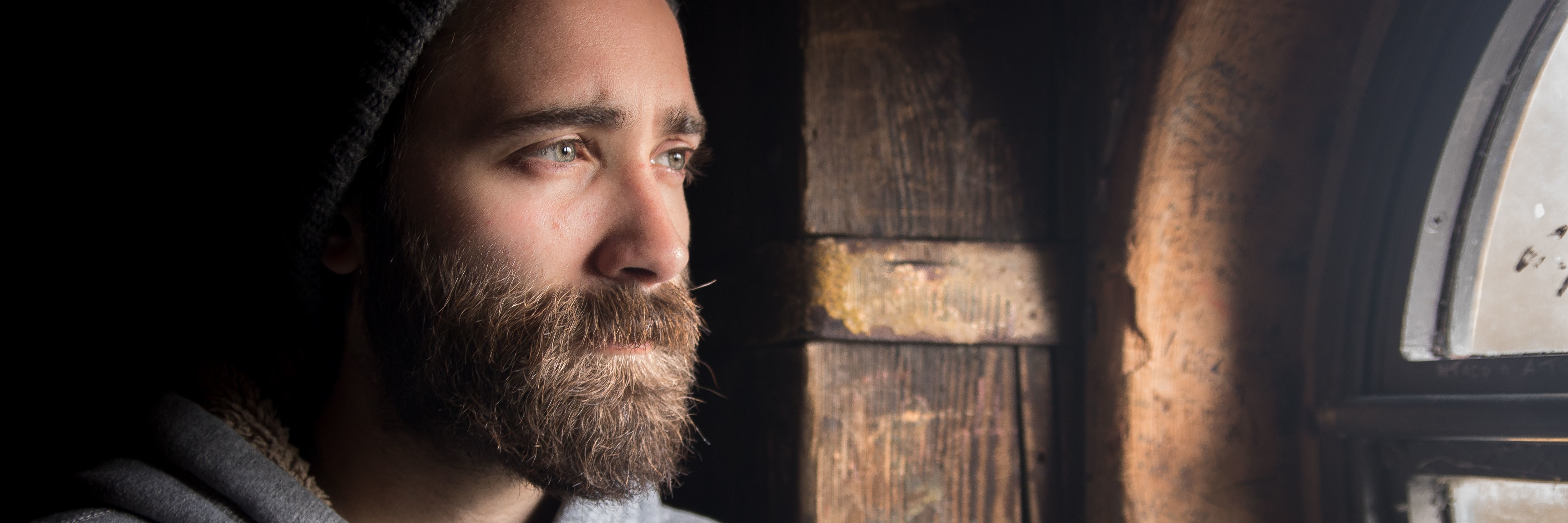Editor’s note: If you live with an eating disorder, the following post could be potentially triggering. You can contact the Crisis Text Line by texting “NEDA” to 741-741.
At the end of 2014, I was considered obese. Over the next year, I lost weight in a “healthy” manner. The progression of my weight loss was slow, but static and effective. People would see my driver’s license photo, taken before any weight loss, and say, “Wow, you look like a completely different person.” Of course, this is amazing to hear. The shift in attitude in those perceiving my physical weight, however, is extremely noticeable. Their eyes glance over me, and seem to say, “Now I get it.”
For me, losing weight was a “high.” Those around me commended me on my progress, and I began to pay closer attention to my physical appearance. When I was obese, I thought, Who the hell cares what I look like? I’m fat. But I did care. And as I gained the confidence in my body I hadn’t had in so long, I craved more of it.
Food became the enemy: the primary impediment to the pleasure and acceptance I was experiencing. Once I reached a certain weight, the “high” became harder to achieve, and typical of one who chases a “high” they’re having difficulty reproducing, I found an extreme solution — in the form of anorexia. At the time, avoidance of food felt easily accomplished. I became used to the nagging feeling of hunger and if anything, enjoyed it, because I knew my “high” was being achieved. I imagined every groan of my stomach as a sign that my body was ravenously discarding of the fat storages I despised.
I thought I was shaking the shackles of the body image issues that had restrained me for so long, but the shackles had changed form. When I was obese, my weight problem was inescapable, following me in every interaction I held. I felt that everyone around me was potentially judging me. On the opposite spectrum, the same holds true.
Many may picture a teenage girl having these experiences. Eating disorders are often considered “immature” and a “woman’s problem.” I’m a 23-year-old man, and I share the same feelings of guilt and hatred towards the same elements that women who share my disorder feel. Society suggests that men should be strong, loud and protective. That men should have an element of “largeness.” I don’t fit this mold, and there are many men like me who don’t either.
These struggles manifest themselves socially very often, similarly to how my obesity socially affected me. I didn’t realize how keen people were to my anorexia until I was working with a close friend of mine, and our co-worker joked, “Wow, you’ve gained weight.”
“Shut up,” my friend responded very quickly and angrily.
“I was just joking! Chill! He clearly hasn’t!” he said.
“You don’t make those jokes,” she said.
I had not once had a conversation with her about my eating disorder. She was right. These jokes are terrible to hear, even when they’re obviously rooted in humor or sarcasm. But she had recognized my problem, and somehow seemed to know the details of it, without ever discussing it with me. This experience lead me to realize that people, even potential strangers, often wonder if there is a problem.
My family is somewhat privy to my struggle, although I avoid speaking of it with them. Recently, we celebrated St. Patrick’s Day at a Tex-Mex restaurant. My mother insisted I eat. “We’ll pay for it. It’s a free meal,” she said, staring me down.
“I’m really fine,” I responded. I hate going to restaurants with people. The societal obsession to bond over food is one that constantly drives itself into my side like a jagged knife. It feels rude and uncomfortable to not eat with people with whom you’re spending time, but occasionally, one must pick the lesser of two evils.
“Have you eaten today?” my mother asked.
“Yes, Mom.” I had eaten. At the restaurant, I ate a lot more. Once I began eating the food in front of me, I continued eating very quickly to finish it. This is not only due to the feeling of satiation but also to quickly end the guilt I was experiencing. This feeling of aversion rooted in guilt stems from my past experiences with overeating, and struggling with the way my body physically reacted to it.
“You were hungry,” my mother said, after I finished my plate. I sensed satisfaction in her statement, as though she had pointed out it was necessary to eat, as if this wasn’t obviously apparent and that she had taught me a profound life lesson. I looked at my empty plate, envisioning the food that was on it only several minutes ago. The difference felt jarring.
Worsening my guilt and hatred towards my inability to control myself, I snacked when I got home. I weighed myself the morning after, and again every time I used the bathroom. I knew that was ridiculous, because that’s not how calories manifest, but I’m willing to admit little rationalization is involved with my relationship with my weight.
I share these experiences because I wish to urge society to view men like me differently. We can struggle with the same feelings that plague women with eating disorders, but these feelings are not often discussed, likely because they do not contribute to the ideal image that society holds of masculinity. If society could at least accept the legitimacy of the struggles men like me face, I think that a portion of the guilt would not burn as hotly.
If you or someone you know is struggling with an eating disorder, you can call the National Eating Disorders Association Helpline at 1-800-931-2237.
We want to hear your story. Become a Mighty contributor here.
Unsplash photo via Lesly B. Juarez.

